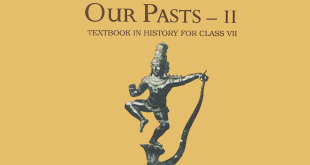Question: What is”Public interest Litigation”?
Answer: “Public interest Litigation” or PIL is a litigation filed in a court of law, for the protection of “Public Interest”, such as pollution, terrorism, road safety, constructional hazards etc.
PIL can be filed for the following reasons:
- Violation of basic human rights of the poor
- Content or conduct of government policy
- Compel municipal authorities to perform a public duty
- Violation of religious rights or other basic fundamental rights
- Any individual or organisation can file a PIL in the High Court or the Supreme
- Court on behalf of those whose rights are being violated. It is not necessary, that the person filing a case should have a direct interest in the case.
Question: What do you know about the jurisdiction on the High Court?
Answer: Jurisdiction:
- The High Court issues writs for the enforcement of Fundamental Rights.
- It passes rules on election petitions and other election-related disputes.
- It hears appeals in both civil and criminal cases against the decisions of the Subordinate Courts and reviews the judgements.
- It controls and supervises the working of the Subordinate Courts.
Question: What are Subordinate Courts? Explain the different types of Subordinate Courts.
Answer: Subordinate Courts: Each state is divided into various districts. The courts which function in these districts are called Subordinate Courts. They hear civil and criminal cases which pertain to the district in which the court is formed. The courts that hear civil cases at the district level are called the District Courts and those that hear criminal cases are called the Sessions Courts.
Types of Subordinate Courts:
- District Judge’s Court: The District Judge’s Court is the highest civil court in a district. it can hear cases related to land, property, money transactions, marriage, divorce, will and guardianship.
- Court of the Sessions Judge: The Court of the Sessions Judge is the highest criminal court in a districts. In the Sessions Court, criminal cases of murder, dacoity and robbery are tired. The Sessions Judge hears appeals against the Judgements of lower courts.
- Revenue Courts: The Revenue Courts deal with cases of land records. It also assesses and collects land revenue from landholders. The highest Revenue Court under the supervision of the highest Revenue Court in a district is the Court of the Collector.
- Panchayat Courts: The Panchayat Courts deal with civil and criminal cases at the village level. These courts work under various regional names names such as the Nyaya Panchayat, Gram Kutchery and so on.
 Class Notes NCERT Solutions for CBSE Students
Class Notes NCERT Solutions for CBSE Students




